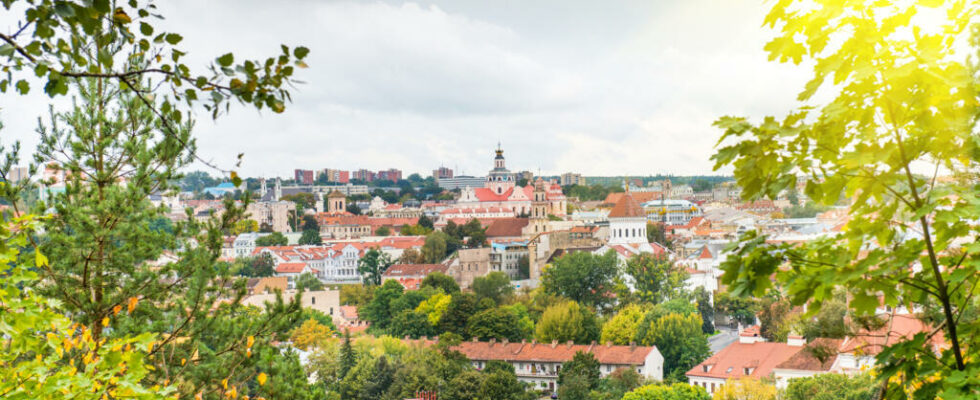Vilnius, Lithuania, is this year’s Green Capital of the European Union. A title awarded by the European Commission to reward efforts made to develop in a more sustainable way. This constantly growing city of 600,000 inhabitants has great ambitions and wants to become a place of experimentation.
From our correspondent in Vilnius,
View from the sky, Vilnius is a green city: 61% of the territory is covered by nature. There is even a forest right in the city center. Jekaterina Lavrinec, anthropologist, explains: “ Vilnius has its green crown, plantations which surround the city and which are visible from many places in the city. At the beginning of the 20th century, paths were still being planted in Vilnius, which encouraged people to move around the city on foot. »
The city obtained this title for the efforts made in different areas, such as air quality, the adaptation of the city to global warming or biological diversity. Jurga Mikutiene, Green Capital Project Manager, says: “ We seek to preserve the flora and fauna in various places and our decision not to mow all the green spaces as is usual has been widely noted. »
Room for pedestrians and cyclists
The municipality has also reduced the width of certain lanes to make room for pedestrians and bicycles. How to better get around the city is one of the big concerns. “ Five years ago, the city restricted the flow of cars that could circulate in the center. For me, it helped people understand that getting everywhere by car is not necessarily better. », Says Silvestras Dikcius, trainer in sustainable development.
More than a hundred kilometers of cycle paths now connect the different districts of Vilnius, a very large city. Public transport is becoming more and more ecological. “ Trolleybuses are buses connected by antennas to an electrical network. Now we have vehicles that recharge their batteries while driving connected to the gridsays Jurga Mikutiene, head of the green capital project. They can be autonomous for a certain period of time and thus there are no CO2 emissions. »
However, all is not rosy for anthropologist Jekaterina Lavrinec: “ Hard surfaces are increasing in the city. More and more green spaces are disappearing to make way for new neighborhoods. This is due to the economic model. Home loans are cheap and the demand is there. »
During this year when Vilnius will be the green capital ofEuropeemphasis will be placed on communication and awareness of ecology. By 2030, Vilnius aims to become climate neutral.
Also readLithuania: buy back land to preserve primary forests and biodiversity
